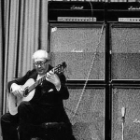Welcome to one of the most active flamenco sites on the Internet. Guests can read most posts but if you want to participate click here to register.
This site is dedicated to the memory of Paco de Lucía, Ron Mitchell, Guy Williams, Linda Elvira, Philip John Lee, Craig Eros, Ben Woods, David Serva and Tom Blackshear who went ahead of us.
We receive 12,200 visitors a month from 200 countries and 1.7 million page impressions a year. To advertise on this site please contact us.
|

|
|
RE: Rosalía “El Mal Querer”
|
You are logged in as Guest
|
|
Users viewing this topic: none
|
|
Login  | |
|

   
tf10music
Posts: 112
Joined: Jan. 3 2017

|
 RE: Rosalía “El Mal Querer” (in reply to BarkellWH) RE: Rosalía “El Mal Querer” (in reply to BarkellWH)
|
|
|
quote:
What is "too silly" is the channeling of your inner Antonio Gramsci and your mis-application of his notion of Hegemony. The "concept" of "cultural appropriation" as being relative to power is your notion, presumably to be used (as is fashionable today) to leverage against those you accuse of "marginalizing" others. But you cannot have it both ways. If you are going to consider "cultural appropriation" a valid concept (which I do not), you must recognize that it exists whether it is practiced by a so-called "marginalized" group or the group in power. To take, or borrow, cultural activities such as music, art, dance, science, etc. from one group to another has been occurring since mankind discovered groups existed other than one's own. The power relationship is irrelevant. And we have all benefited from the exchange.
You may be surprised to learn that several Foro members are well-aware of the history of Al-Andalus and subsequent events after the Reconquista. We are cognizant of historical, political, and cultural developments, as well as the development of flamenco and the influence the Moors and Sephardic Jews have had in that development. No one is denying that the Andalusian gitanos have claimed it as their own (although that violates your statement above about saying "this is ours"). My point was that the gitanos owe a debt to other elements (Moors, Sephardic Jews) in the development of flamenco. And it renders them a bit hypocritical to accuse the woman who is the subject of this thread of "cultural appropriation.
Interesting that you default to Gramsci. For what it's worth, I think that Italian tradition of marxism is mostly just theology (I mean, have you SEEN Negri/Hardt and Virno's very nearly messianic confidence in the multitude?) I think the idea of cultural hegemony is theological because it assumes that capitalism is some kind of mystical ur-structure that is no longer rooted in material relations. Gramsci's reception in Andalucía (and particularly in Granada) is an interesting one, though. There are some great poets who were very influenced by his and Althusser's work in the 80s.
I mostly used the term "power" because I didn't think that this forum was the ideal space to have a philosophical discussion...but I'll bite. In order to adequately comprehend the manner in which a given group is positioned relative to its society, one must consider the dialectical relation between large-scale economic and ideological history and small-scale social history. The interaction between these two forms of anteriority is what causes imbalances in resource accumulation, social capital, or "power." Of course cultural appropriation exists no matter what its directionality (you are correct about that), but it only becomes a potential problem when a privileged group is taking from a marginalized group.
I don't have a problem with taking or borrowing, actually. On top of flamenco, I play a lot of blues. But when one is operating from the top end of an imbalance, one must find a way to make sure that the coding one is taking (whether musical, visual, or linguistic) is in some way revivifying and promoting the original culture in a new context. That's a pretty low bar to clear.
I think the point that I was trying to make about gitanos and flamenco might have gotten lost in translation. I wasn't questioning your knowledge so much as observing that a) the gitanos were not in a position of power when they borrowed elements of música andalusí and b) it's kind of weird to accuse the gitanos of appropriating from peoples who weren't even present during flamenco's nascence and development. There are no repercussions for appropriation when the peoples from whom one is borrowing are so absent that there is no conceivable possibility of them benefiting from having their musical traditions all to themselves. I should add that despite all of that, there are countless nods to both Jews and Muslims in the letras, as I'm sure you're aware. I feel like much of the flamenco ethos in Granada has to do with this perceived connection to Muslim and Sephardic Jewish music.
For what it's worth, I don't think it's right to accuse Rosalía of cultural appropriation, since it's apparent that she's very interested in working through the potential problems of her engagement with flamenco. It seems like she's actively questioning what it means to be "Spanish," and her mode of inquiry is to place different regional/cultural discourses that have been attributed to "Spain" together in a musical context, such that they generate a friction (and even a dissonance, at times).
Regarding your reply to El Burdo: Nobody is denying that most (if not all) groups have been perpetrators of violence at some point. What people are trying to tell you is that violence is situational, can be either horizontally or vertically oriented. If you think that there isn't a difference between tribal conflicts between the Pueblo and the Navajo and the vertical violence of colonialism, I don't know what to tell you (hard to argue about the Aztec Empire, though, admittedly). In any case, appropriation is situational insofar as violence is situational. I'm Jewish, which means that at various points my people have suffered violence and persecution, and I'm well aware of the fact that contemporary Christians have at times unscrupulously appropriated my culture (remember that fake Christian 'rabbi' who delivered a prayer at Mike Pence's rally after the Pittsburgh shootings?). At the same time, though, if I decide to take from, say, Black musical traditions in a way that doesn't acknowledge my debt, erases cultural difference and doesn't attempt to bolster or honor the culture with which I'm engaging, then I am similarly guilty of appropriation (though my appropriation will likely be less vindictive than that of the 'messianic rabbi,' because seriously, that's low). It's a question of sensitivity and ethics, is what I'm saying. Cultural exchange is great, so long as it's generous and respectful, and doesn't essentialize, caricature or commodify the 'other.'
Re: Mark2: That's not what I'm saying at all. Play all the falsetas you like! Maybe if you start selling records, it might become a bit of an issue, but even then, there are innumerable ways to give back to a community that aren't monetary. I'm also well aware that there have been plenty of great flamenco artists who aren't gitanos (hell, if it weren't for Silverio Franconetti, we'd have a lot less variety preserved in flamenco). It always strikes me, though, that so many people think in absolute terms and not in terms of tendency. Flamenco does not (and should not) belong absolutely to the gitanos, but it certainly tends in that direction.
|
|
|
|
REPORT THIS POST AS INAPPROPRIATE |
Date Dec. 14 2018 20:45:06
 |
|

   
El Burdo
Posts: 632
Joined: Sep. 8 2011

|
 RE: Rosalía “El Mal Querer” (in reply to BarkellWH) RE: Rosalía “El Mal Querer” (in reply to BarkellWH)
|
|
|
quote:
In the 1970s, in East Africa (primarily Uganda) sub-Saharan Blacks forced all of the East Indian communities out of their countries. The East Indians were astute businessmen and entrepreneurs, and the Blacks resented them, even though they were unable to run the businesses themselves. . When you say 'unable' do you mean this?
"The banks--Bank of Baroda, Bank of India, and Standard Bank of South Africa--did not lend to many Africans. As such, the Africans could not participate in wholesale trade because the colonial government issued wholesale licenses only to traders with permanent buildings of stone or concrete. Very few African traders had such buildings. It was clear that the colonial wanted native Ugandans to remain hewers of wood and drawers of water" or do you mean what I think you mean, they were incapable? I'm talking about 'the Blacks'? Plenty to unpack there.
Racial/cultural hegemony and consequent privilege leads to a social structure wherein that privilege doesn't recognise imbalance unless it's contrary to its own interests. So, it's threatened when accused of appropriation. It helps that the skewed educational opportunities available to those of the privileged class, due to their having power, allow them to find any evidence they need to support their arguments. Against such hegemony, the marginalised (I'm not going to bother to enlarge on this, you get it or you don't) are entitled to their solidarity as they don't operate, on any reasonable analysis, as equals. We should recognise, not poo poo, those higher on the ownership levels of a culture than ourselves. The task is to be able to fairly and adequately demonstrate one's respect which was the point of my question.
Of course your last point is correct, but it doesn't change my assertion. Power will act as it wishes; Tiglath-Pileser III and Israel, Nebuchadnezzar and Judah. European transplants and Native Americans.
|
|
|
|
REPORT THIS POST AS INAPPROPRIATE |
Date Dec. 14 2018 20:53:47
 |
|

   
tf10music
Posts: 112
Joined: Jan. 3 2017

|
 RE: Rosalía “El Mal Querer” (in reply to Piwin) RE: Rosalía “El Mal Querer” (in reply to Piwin)
|
|
|
quote:
I think the first time I ran into the concept was back in the 90s. Part of the whole "plastic medicine men" thing. I could see what the problem was and why people were bothered by it. But I honestly couldn't see how cultural appropriation provided anything interesting as a framework to address that problem. Still don't. We have much better tools and more intelligible manners of addressing the disparities of power and status across ethnic groups.
Its fatal flaw is its very poor articulation (or complete lack thereof) of the relationship between an individual and a group. Even in your post, we have an individual saying "this is ours", not "this is mine" (even that latter statement would probably not reflect reality for most cases, but at least it'd be somewhat closer to it...). Every individual then becomes a flag-bearer for a group, which is a major step backwards if what we wanted was a world where everyone could be treated on equal terms as an individual. I think I've done my fair share of reading of the academic lore on this, and I'll admit that I've walked away rather disappointed. And as it stands right now, for whatever small insight that might have been gained in a niche academic circle, there are far more cases of people, including academics, using it not as a way to understand the interaction between populations, but as a way to justify a personal attack on an individual.
You know, I actually agree with what you're saying here in a lot of ways. My personal theoretical project involves the idea of excavating the socio-cultural histories of linguistic use that have generated standards for knowledge and conceptualization within cultural groups. The idea is to relativize everything in a circular manner: culture generates concepts relative to individuals and individuals generate concepts relative to culture (this is not original -- it's all in Wittgenstein). My goal is to extend this relation outward onto interactions between cultures in an attempt to theorize action on a civilizational scale. I am, as it happens, extremely terrified of climate change, so I think we need to start theorizing civilizational upheaval as a decision that binds individuals and cultures together while at the same time leaving them distinct -- there's no time for a revolution.
This is a bit of a tangent, but what I'm trying to say is that I agree that the conversation surrounding a concern like cultural appropriation is flawed or incomplete in some way. But that doesn't mean that it isn't a problem or that it doesn't exist.
|
|
|
|
REPORT THIS POST AS INAPPROPRIATE |
Date Dec. 14 2018 21:19:03
 |
|

   
Richard Jernigan
Posts: 3430
Joined: Jan. 20 2004
From: Austin, Texas USA

|
 RE: Rosalía “El Mal Querer” (in reply to Piwin) RE: Rosalía “El Mal Querer” (in reply to Piwin)
|
|
|
quote:
ORIGINAL: Piwin
I think the first time I ran into the concept was back in the 90s. Part of the whole "plastic medicine men" thing. I could see what the problem was and why people were bothered by it. But I honestly couldn't see how cultural appropriation provided anything interesting as a framework to address that problem. Still don't. We have much better tools and more intelligible manners of addressing the disparities of power and status across ethnic groups.
Though not under the name “cultural appropriation” I first encountered the idea in the jazz scene of the 1950s on the east coast of the USA. Many in the hard bop genre (Charlie Parker, Dizzy Gillespie) and some musicians regarded as even further out, like Thelonious Monk, consciously complicated their art, not only in creative exuberance, but also with the avowed objective of excluding white players. Relatively few white players studied as hard, or had the playing opportunities of the black avant-garde.
The hard bop players took their exclusive attitude from the experience of their immediate predecessors, the big band era of the late ‘20s and ‘30s. Jazz in New Orleans at the beginning of the 20th century was multi-racial. In the Kansas City, Chicago and New York scenes black influence predominated. Louis Armstrong was arguably the most influential and successful jazz musician of the 1920s. The big band era was predominantly white, with only a very few exceptions like Duke Ellington and Count Basie. But the first well known big band was Fletcher Henderson’s. Henderson’s band, though tremendously influential, had little commercial success outside of Harlem, the black uptown neighborhood of New York City.
White people quickly dominated the big band and small group swing scenes. Much of Benny Goodman’s early success was earned playing arrangements played by Henderson’s band, with literally the same written paper parts bought from Henderson. Henderson’s unemployed black musicians were condemned to be observers of Goodman’s spectacular financial success and the resultant prosperity of his white musicians.
The Henderson/Goodman story and many other parallels provided the next generation of black musicians with a clear example of cultural appropriation, with disastrous financial consequences.
All the same, my conscience is clear. I don’t think my amateur eclecticism has had even an infinitesimal cultural or financial impact.
I’m only a short way into reading Antonio and David Hurtado Torres’ “La Llave de la Musica Flamenca.” I will say it is the only documented, musically literate history of flamenco, authored by professional musicologists, that I have come across during more than fifty years of interest in the art. They clearly object to the idea that flamenco is a product almost exclusively of the gitanos. I have yet to review most the evidence they present, so I must reserve judgment. I did learn that shortly after the 1609 “expulsion” of the moriscos, the number of “gitanos” in the Spanish census doubled. Authoritative historians attribute this to moriscos assuming gitano identity to avoid deportation, and the attention of the Inquisition.
RNJ
|
|
|
|
REPORT THIS POST AS INAPPROPRIATE |
Date Dec. 14 2018 21:28:18
 |
|

   
Mark2
Posts: 1871
Joined: Jul. 12 2004
From: San Francisco

|
 RE: Rosalía “El Mal Querer” (in reply to tf10music) RE: Rosalía “El Mal Querer” (in reply to tf10music)
|
|
|
When I first started studying flamenco in 1981, and began to understand how the culture was a vital part of the music, I questioned the idea of playing the music at all. I'm not gitano and not from Spain........I asked my mother about it, and she said the music belongs to those who can play it.
I really think that is true, and today for example you have good jazz artists from many countries. Flamenco is the same I think, in that artists from other countries will continue to study, and at some point be recognized by leading artists in flamenco. As far as giving back, I think most foreign students give a lot to the flamenco community, supporting artists with lessons and concert tickets, etc.
To suggest that an artist who takes something from flamenco owes something to the culture as a whole, that is a personal decision IMO, not something that can be dictated by others. Every artist knows their own history, and they know who they owe.
quote:
ORIGINAL: tf10music
Re: Mark2: That's not what I'm saying at all. Play all the falsetas you like! Maybe if you start selling records, it might become a bit of an issue, but even then, there are innumerable ways to give back to a community that aren't monetary. I'm also well aware that there have been plenty of great flamenco artists who aren't gitanos (hell, if it weren't for Silverio Franconetti, we'd have a lot less variety preserved in flamenco). It always strikes me, though, that so many people think in absolute terms and not in terms of tendency. Flamenco does not (and should not) belong absolutely to the gitanos, but it certainly tends in that direction.
|
|
|
|
REPORT THIS POST AS INAPPROPRIATE |
Date Dec. 14 2018 23:06:15
 |
|

   
Richard Jernigan
Posts: 3430
Joined: Jan. 20 2004
From: Austin, Texas USA

|
 RE: Rosalía “El Mal Querer” (in reply to El Burdo) RE: Rosalía “El Mal Querer” (in reply to El Burdo)
|
|
|
iit quote:
Original El Butdo
Richard: Charlie Parker was 'be-bop'. Hard Bop was more Horace Silver, Tadd Dameron or Joe Henderson. Be-bop was revolutionary, Hard Bop was a development of Bop on steroids...
Yes, you’re right. It was a long time ago when I subscibed to both Downbeat and Metronome, hung out at Waxie Maxie’s record shop on 7th street in Washington DC, and listened to Willis Conover before he went on Voice of America.
Come to think of it, I was inspired by Conover’s theme music to write up an arrangement of “Early Autumn” for my nine-piece band. It didn’t get played much— not good slow dance music for high school kids, but we liked to play it.
The be-boppers achieved one of their objectives with me: I was never any good at it. I copped a few pieces off records, learned a couple of Diz’s solos, but I didn’t think my own stuff was any good, even if I sat down and figured it out in advance. And to me it was an intellectual exercise that didn’t inspire me to really work hard.
Some time in the late 1980s my girlfriend and I were eating at a restaurant in San Francisco. A man was playing alto sax, accompanied by piano and drums. After a while I started to chuckle a little. “What’s funny?”asked my companion.
“Sax player is doing some Charlie Parker licks. Once it was revolutionary, now it’s elevator music.”
“Who’s Charlie Parker?” She’s a sophisticated woman, more literary than musical, but too young to have any idea of the Bop era. I tried to explain, no doubt lamely. Since it was pre-Youtube I thought of playing a few recordings, but realized that the only ones I had were vinyl and the turntable hadn’t been set up since I moved to California.
“So how is the guy unique who’s playing now?”.
“That’s just the point. He’s like hundreds of other guys all playing the same way.” And he was white.
RNJ
|
|
|
|
REPORT THIS POST AS INAPPROPRIATE |
Date Dec. 15 2018 0:23:54
 |
|

   
BarkellWH
Posts: 3458
Joined: Jul. 12 2009
From: Washington, DC

|
 RE: Rosalía “El Mal Querer” (in reply to tf10music) RE: Rosalía “El Mal Querer” (in reply to tf10music)
|
|
|
quote:
On the topic of slavery, Orlando Patterson's "Slavery and Social Death: A Comparative Study" is a) a great read and b) elucidates the differences between cultures that engaged in slavery and slave cultures (he doesn't confine his discussion to the Americas and the Caribbean, too, which makes the book extra interesting).
The best work I have read on the Atlantic slave trade is "The Slave Trade," by the British historian Hugh Thomas. Thomas goes into great detail on both the slavers from Europe and America and the flourishing slave markets run by, and in many cases greatly enriching, the African slave traders operating in Ghana/Dahomey and the West Coast of Africa. Hugh Thomas primarily specialized in Spain and Latin American history, and his work entitled "The Spanish Civil War" is the best history of that conflict I have read. Highly recommended.
For a take on slavery that is little mentioned in the West, I highly recommend "Islam's Black Slaves," by Ronald Segal. The first slaves were brought to Europe by the Portuguese in the 15th century. Slavery in the Arab Muslim world had existed for eight centuries before the Portuguese first brought slaves to Europe. From the seventh century Arab slavers operated along the east coast and the interior of Africa, again, dealing with the African slave traders themselves. And the Muslim slavers operated up until recent times. Saudi Arabia outlawed slavery only in 1962, and slavery is still practiced in Mauritania and other enclaves in African Muslim states.
Bill
_____________________________
And the end of the fight is a tombstone white,
With the name of the late deceased,
And the epitaph drear, "A fool lies here,
Who tried to hustle the East."
--Rudyard Kipling
|
|
|
|
REPORT THIS POST AS INAPPROPRIATE |
Date Dec. 15 2018 1:19:46
 |
|

   
Richard Jernigan
Posts: 3430
Joined: Jan. 20 2004
From: Austin, Texas USA

|
 RE: Rosalía “El Mal Querer” (in reply to BarkellWH) RE: Rosalía “El Mal Querer” (in reply to BarkellWH)
|
|
|
African slaves were numerous in Spain as far back as the early middle ages.
The Hurtado Torres brothers write that the oldest flamenco palo clearly recorded in historical writings and musical notation is the fandango. They document its introduction into Spain from Africa at least as early as the beginning of the 17th century, when 10% of the population of Sevilla was African by birth or descent.
So the non-flamenco verdiales of the modern day rural pandas of the province of Malaga are musically descended from Africa, as are the numerous fandangos de Huelva, malagueñas, tarantas, granadinas and the various fandangos naturales and personales, which began to be derived from fandangos in the 19th and early 20th century by the flamencos. Even Ramon Montoya’s Rondeña and its latter day followers are descended from Africa.
People point out that Antonio Chacon, the great originator of versions of granadinas, media granadina, and malagueñas, was not gitano by birth. But to be fair, he was a payo orphan raised by a gitano shoemaker in the Barrio Santiago of Jerez.
Another famous and influential non-gitano was Silverio Franconetti, born in 1831 (the same year as my great-grandfather). His father was born in Rome, his mother was from Alcala’ de Guadaira. He grew up in Moron de la Frontera, and hung out there among the blacksmith shops listening to the songs sung as the men worked at the forges. Of course blacksmithing was a common profession among gitanos. Silverio spent eight years in Latin America, working at times as a tailor or a soldier. In his time there as a picador he would perhaps have come in contact with gitano toreros.
RNJ
|
|
|
|
REPORT THIS POST AS INAPPROPRIATE |
Date Dec. 15 2018 1:53:27
 |
|

   
BarkellWH
Posts: 3458
Joined: Jul. 12 2009
From: Washington, DC

|
 RE: Rosalía “El Mal Querer” (in reply to Richard Jernigan) RE: Rosalía “El Mal Querer” (in reply to Richard Jernigan)
|
|
|
quote:
Of course blacksmithing was a common profession among gitanos.
And not just in the past. Santiago Donday, a gitano cantaor who died in 2004, was a blacksmith. There is a very good CD featuring Santiago Donday, with Paco Cepero accompanying, entitled "Morrongo." Donday's voice was not what it once was, but it is worth it just to hear Paco Cepero accompanying.
Bill
_____________________________
And the end of the fight is a tombstone white,
With the name of the late deceased,
And the epitaph drear, "A fool lies here,
Who tried to hustle the East."
--Rudyard Kipling
|
|
|
|
REPORT THIS POST AS INAPPROPRIATE |
Date Dec. 15 2018 13:10:29
 |
|
 New Messages New Messages |
 No New Messages No New Messages |
 Hot Topic w/ New Messages Hot Topic w/ New Messages |
 Hot Topic w/o New Messages Hot Topic w/o New Messages |
 Locked w/ New Messages Locked w/ New Messages |
 Locked w/o New Messages Locked w/o New Messages |
|
 Post New Thread
Post New Thread
 Reply to Message
Reply to Message
 Post New Poll
Post New Poll
 Submit Vote
Submit Vote
 Delete My Own Post
Delete My Own Post
 Delete My Own Thread
Delete My Own Thread
 Rate Posts
Rate Posts
|
|
|
Forum Software powered by ASP Playground Advanced Edition 2.0.5
Copyright © 2000 - 2003 ASPPlayground.NET |
0.09375 secs.
|


 Printable Version
Printable Version













 . Potito's Fuente del Amor -
. Potito's Fuente del Amor - 

 New Messages
New Messages No New Messages
No New Messages Hot Topic w/ New Messages
Hot Topic w/ New Messages Hot Topic w/o New Messages
Hot Topic w/o New Messages Locked w/ New Messages
Locked w/ New Messages Locked w/o New Messages
Locked w/o New Messages Post New Thread
Post New Thread